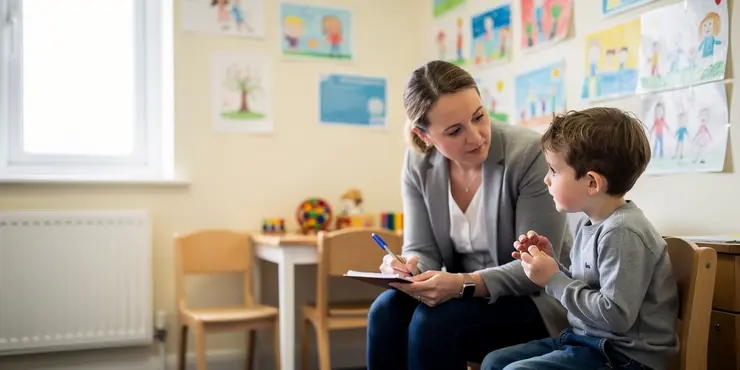
Find Help
More Items From Ergsy search
-
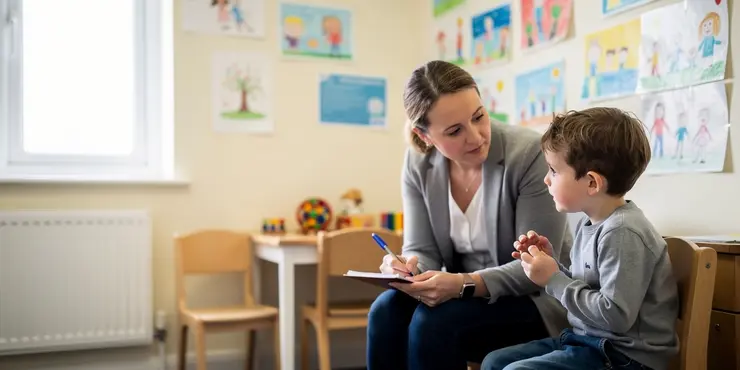
What role does the environment play in ADHD?
Relevance: 100%
-
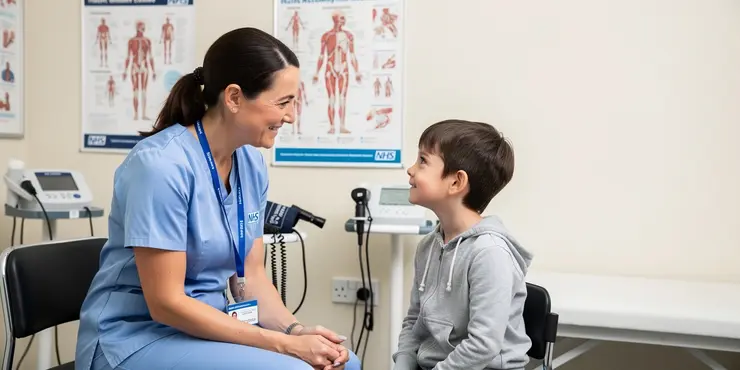
What is ADHD?
Relevance: 81%
-

Can ADHD be inherited?
Relevance: 78%
-

What causes ADHD?
Relevance: 78%
-

Are there different types of ADHD?
Relevance: 74%
-

Is there a cure for ADHD?
Relevance: 71%
-

Attention deficit hyperactivity disorder (ADHD) - Living with ADHD
Relevance: 71%
-

What are the main symptoms of ADHD?
Relevance: 70%
-
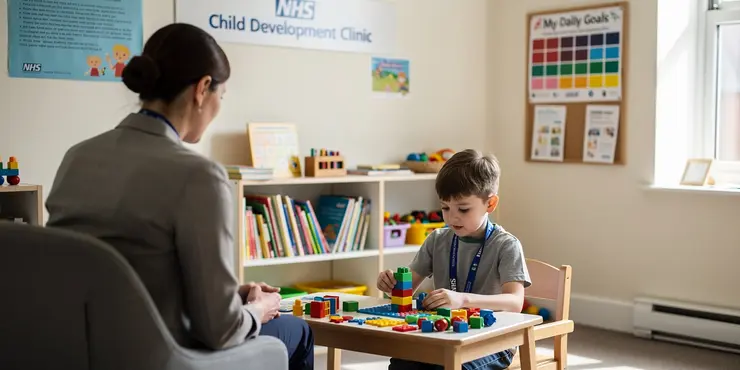
How is ADHD diagnosed?
Relevance: 69%
-
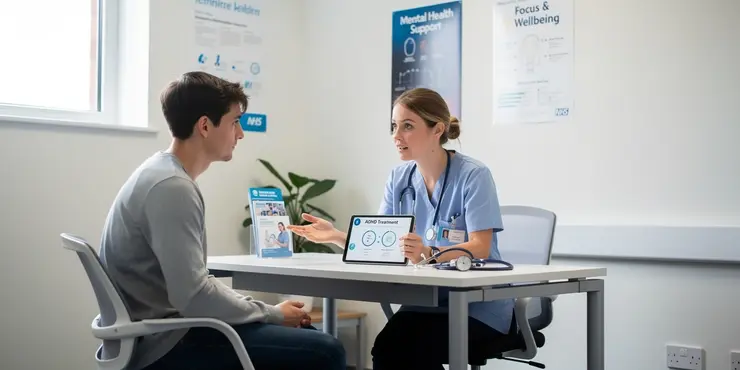
What are common treatments for ADHD?
Relevance: 69%
-

Can adults have ADHD?
Relevance: 68%
-
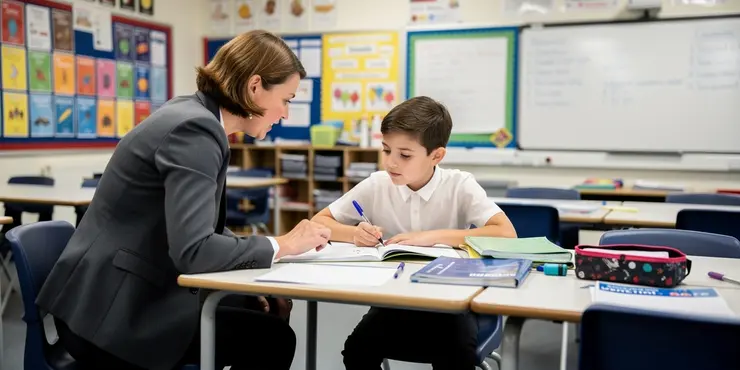
How can teachers support students with ADHD?
Relevance: 67%
-
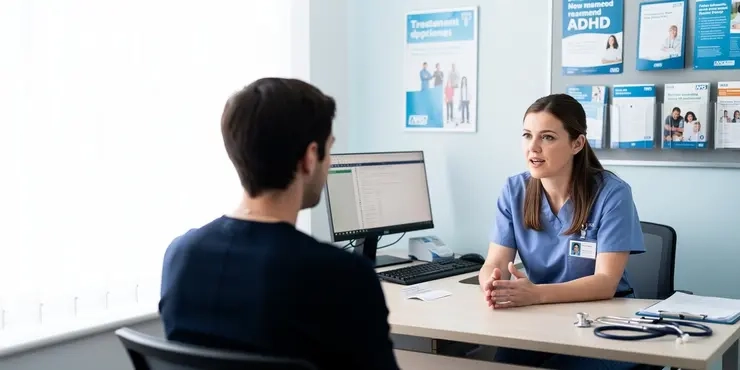
Attention deficit hyperactivity disorder (ADHD) - Treatment
Relevance: 66%
-

Can lifestyle changes help manage ADHD?
Relevance: 65%
-

Can therapy help individuals with ADHD?
Relevance: 65%
-
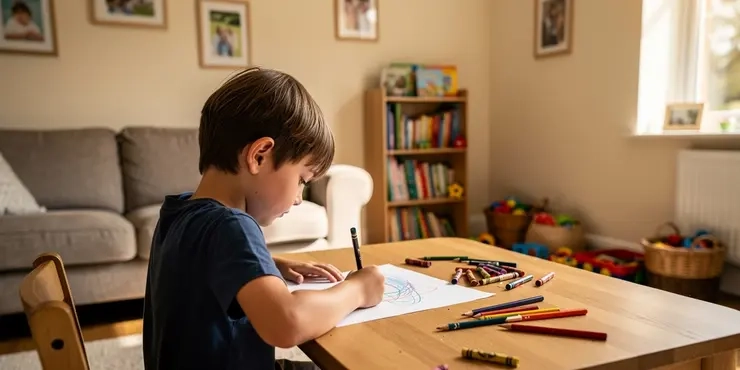
Attention deficit hyperactivity disorder (ADHD) - Introduction
Relevance: 64%
-
How can I get tested for ADHD?
Relevance: 64%
-

Is ADHD more common in boys or girls?
Relevance: 63%
-

Are there any risks associated with untreated ADHD?
Relevance: 63%
-

Can diet affect ADHD symptoms?
Relevance: 62%
-
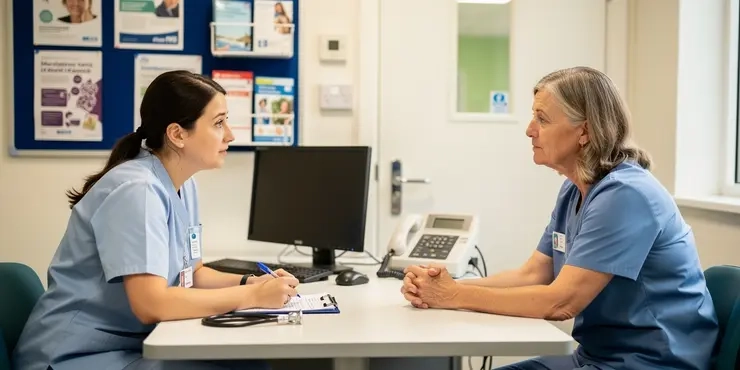
Attention deficit hyperactivity disorder (ADHD) - Diagnosis
Relevance: 61%
-

How does ADHD affect executive function?
Relevance: 61%
-

What is ADHD?
Relevance: 57%
-
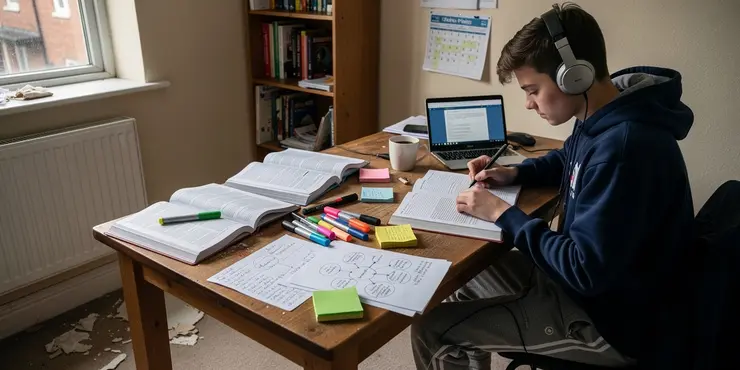
Can ADHD affect academic performance?
Relevance: 49%
-

What are the environmental impacts of cremation?
Relevance: 43%
-

Are woodland burials environmentally friendly?
Relevance: 42%
-

What environmental considerations are there for ground burials?
Relevance: 41%
-

Building a Healthy Home Environment
Relevance: 40%
-

Does the surveyor's report cover environmental risks?
Relevance: 40%
-

Are urban environments related to the loneliness epidemic?
Relevance: 39%
-
Can environmental factors contribute to type 1 diabetes?
Relevance: 38%
-

Supreme Court to Hear Landmark Case on Environmental Regulations
Relevance: 37%
-

What is the safest sleep environment for an infant?
Relevance: 37%
-

What is the work environment like at the National Trust?
Relevance: 37%
-

Greenwashing Lawsuits Increase as Environmental Claims Face Legal Checks
Relevance: 34%
-
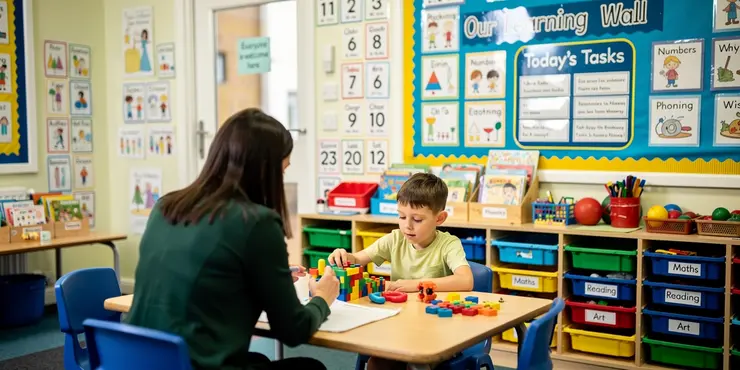
How can schools create an inclusive environment for SEND children?
Relevance: 33%
-
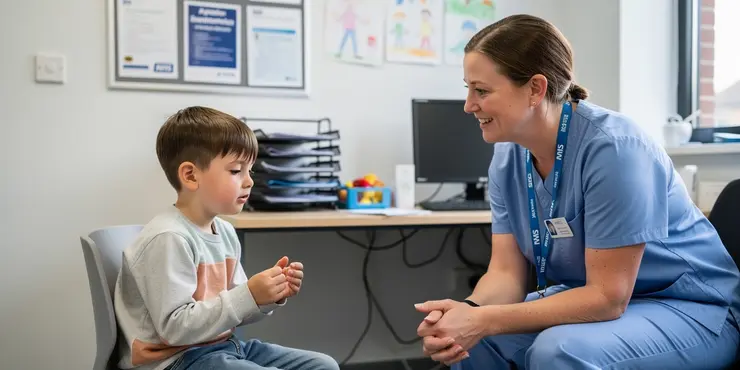
What are some common types of SEND?
Relevance: 31%
-
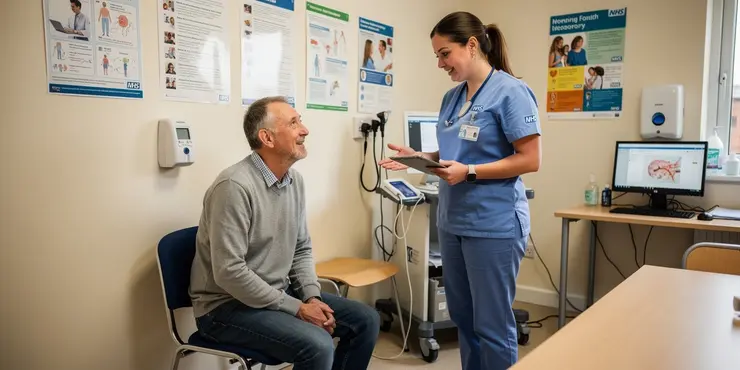
What impact does water loss have on the environment in the UK?
Relevance: 31%
-

Does the surveyor's report cover environmental risks?
Relevance: 26%
-
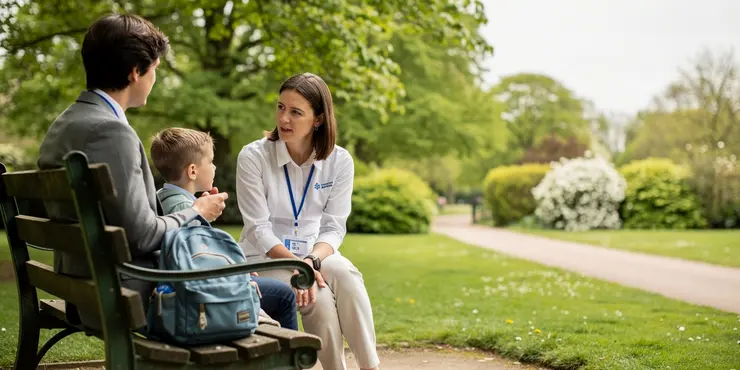
Understanding Mental Health in Children
Relevance: 23%
Understanding ADHD
Attention Deficit Hyperactivity Disorder (ADHD) is a neurodevelopmental disorder characterized by symptoms of inattention, hyperactivity, and impulsivity. This condition often manifests in childhood, though it can continue into adulthood. While genetics are known to play a significant role in the development of ADHD, environmental factors are also crucial in understanding how the disorder manifests and progresses.
The Influence of Prenatal Environment
The environment experienced by a child begins even before birth. Research suggests that prenatal factors such as maternal smoking, alcohol use, and exposure to toxins can increase the risk of ADHD. For instance, maternal smoking during pregnancy is associated with a higher likelihood of the child developing ADHD symptoms. Additionally, maternal stress and poor nutrition during pregnancy may contribute to disruptions in neural development relevant to ADHD.
Early Childhood Environment
Once a child is born, the early childhood environment continues to impact their development. Factors such as exposure to environmental toxins, including lead and polychlorinated biphenyls (PCBs), have been linked to an increased risk of ADHD. Furthermore, early childhood adversities such as neglect, abuse, and familial stress are associated with higher rates of ADHD diagnoses. A stable and supportive home environment during early childhood can mitigate some risk factors, whereas a chaotic or unstimulating environment may exacerbate symptoms.
The Role of Diet and Lifestyle
Diet and lifestyle choices can also influence ADHD symptoms. Although diet alone cannot cause or cure ADHD, certain dietary factors such as high sugar intake or food additives have been proposed to affect symptoms in some individuals. Omega-3 fatty acids, found in fish and certain seeds, may have positive effects on behaviour and cognition, potentially alleviating some ADHD symptoms. Additionally, maintaining regular physical activity is beneficial, as exercise can help reduce impulsivity and improve concentration.
Education and Social Environment
The school and social environment are also pivotal in the experience of individuals with ADHD. Positive academic accommodations and understanding educators can make a significant difference in managing symptoms. Conversely, negative social interactions and bullying can exacerbate difficulties faced by those with ADHD. Peer support and educational interventions tailored to ADHD can promote better outcomes.
Conclusion
While ADHD is rooted in genetic and neurological factors, the environment plays a substantial role in shaping its manifestation and management. By understanding the impact of prenatal conditions, early childhood experiences, dietary and lifestyle choices, and educational contexts, it becomes possible for parents, educators, and healthcare providers to create supportive environments that help manage ADHD symptoms. Awareness and intervention in these environmental aspects can enhance the quality of life for individuals with ADHD and their families across the UK.
What is ADHD?
ADHD stands for Attention Deficit Hyperactivity Disorder. It means having trouble paying attention, sitting still, or being patient. ADHD often starts when you're a kid and can last into being an adult. It is partly because of genes, but the world around you is important too.
Before a Baby is Born
A baby starts growing inside the mom, and the things the mom does can make a difference. If the mom smokes, drinks alcohol, or is around bad chemicals, it can make ADHD more likely. Being very worried or not eating well when pregnant can also affect the baby’s brain.
When You're a Little Kid
Once a baby is born, the world around them keeps affecting how they grow. If kids are around things like lead or other harmful stuff, it can make ADHD more likely. Bad experiences like not being treated well or family stress can also bring more chances of ADHD. A happy and safe home helps, while a messy or boring one might make ADHD worse.
Food and Play
What a person eats and does can change how ADHD feels. Eating lots of sugar or certain colorings might make ADHD seem worse for some. Good things like fish that have Omega-3 can help. Playing and being active is good because it can help kids focus better and be less impulsive.
School and Friends
How a child is treated at school and with friends matters a lot. Teachers who understand ADHD can help kids do well in school. But if kids get bullied or have a hard time with friends, it can make things tougher. Having friends and help at school makes life better for kids with ADHD.
In the End
ADHD is about how the brain and genes work, but the world around a person is very important too. By knowing what things affect ADHD, like being healthy before birth, a happy home, good food, exercise, and school support, everyone can help kids with ADHD feel better. It helps kids with ADHD and their families have a better life in the UK.
Frequently Asked Questions
What is ADHD?
ADHD stands for Attention-Deficit/Hyperactivity Disorder, a neurodevelopmental disorder characterized by symptoms of inattention, hyperactivity, and impulsivity.
How does the environment affect ADHD symptoms?
Environmental factors can influence the severity and expression of ADHD symptoms. Factors such as family dynamics, school settings, and community support can either exacerbate or mitigate symptoms.
Can prenatal environments contribute to ADHD?
Yes, prenatal exposure to substances such as alcohol, tobacco, and certain drugs has been associated with an increased risk of developing ADHD.
Are there dietary factors that influence ADHD?
Some studies suggest that certain dietary components, like artificial food additives and sugar, may affect ADHD symptoms, although more research is needed.
How does sleep affect ADHD?
Sleep disturbances are common in individuals with ADHD, and poor sleep can exacerbate symptoms of inattention and hyperactivity.
Can exposure to toxins and pollutants contribute to ADHD?
Exposure to environmental toxins such as lead and certain industrial chemicals has been linked to an increased risk of ADHD in children.
Does screen time have an impact on ADHD?
Excessive screen time has been associated with increased attention problems in children, which can exacerbate ADHD symptoms.
How do parenting styles influence ADHD symptoms?
Parenting styles that provide structure, consistency, and positive reinforcement can help manage ADHD symptoms more effectively.
Can stress in the home environment worsen ADHD symptoms?
Chronic stress or emotional upheaval within the home can aggravate ADHD symptoms and affect a child’s ability to cope with challenges.
Is there a relationship between ADHD and socioeconomic status?
Some studies have suggested that lower socioeconomic status is associated with a higher prevalence of ADHD, possibly due to increased exposure to stress and environmental risk factors.
How does a structured environment benefit children with ADHD?
A structured environment can provide predictable routines and clear expectations, which help children with ADHD focus and reduce anxiety.
Can school environments affect ADHD symptoms?
Yes, schools that provide accommodations and support can help students with ADHD manage their symptoms more effectively and improve academic outcomes.
Are ADHD symptoms influenced by social interactions?
Positive social interactions and supportive relationships can help children with ADHD develop better coping strategies and social skills.
Can physical activity mitigate ADHD symptoms?
Regular physical activity has been shown to have a positive impact on reducing symptoms of hyperactivity and improving attention in children with ADHD.
Does exposure to digital media affect children with ADHD?
There is ongoing research into how digital media exposure impacts ADHD symptoms, with some evidence suggesting it may contribute to attention problems.
How important is routine for managing ADHD?
Establishing a consistent routine helps provide structure and predictability, which can significantly aid in managing ADHD symptoms.
Can peer relationships affect children with ADHD?
Healthy peer relationships can provide social support and reduce feelings of isolation, which can have a positive impact on ADHD symptoms.
Does a child's learning environment impact ADHD symptoms?
Learning environments that are flexible and accommodating to various learning styles can help children with ADHD focus and succeed academically.
Can nutrition influence ADHD symptom management?
A balanced diet rich in nutrients has been suggested to support cognitive function and may help manage ADHD symptoms, although more research is needed.
Is there a genetic component to ADHD influenced by environmental factors?
ADHD has a genetic component, but environmental factors can influence the expression of the disorder and the severity of symptoms.
What is ADHD?
ADHD stands for Attention Deficit Hyperactivity Disorder.
It means some children and adults find it hard to sit still, pay attention, or stay calm.
People with ADHD might talk a lot, move a lot, or forget things easily.
If you want to learn more, you can ask a grown-up or use picture books and videos that talk about ADHD.
ADHD means Attention-Deficit/Hyperactivity Disorder. It is a brain disorder. People with ADHD can find it hard to pay attention, sit still, and wait their turn.
How does where you are affect ADHD?
Things around us can change how bad ADHD symptoms are. Family, school, and community can make symptoms better or worse.
Can being in the womb cause ADHD?
When a baby is growing in the mother's tummy, things around the baby are called the prenatal environment. This can include the mother's health and what she eats or drinks.
Scientists want to know if these things can cause ADHD, which makes it hard for some kids to sit still and pay attention.
To help understand, try using pictures or simple charts.
Ask a parent, teacher, or friend if you want to talk more about this.
Yes, if a mother uses things like alcohol, cigarettes, or some drugs before a baby is born, it can make it more likely that the baby will have ADHD.
If you find it hard to read, you can:
- Listen to the text using a read-aloud app.
- Ask someone to read it with you.
- Look for books or websites that use simple words.
Can food affect ADHD?
Some studies say that things in food, like fake colors and sugar, might change ADHD symptoms. But, we need to learn more about this.
How does sleep affect ADHD?
ADHD means you may find it hard to pay attention. Sleep is important for everyone. It helps us feel good and think clearly.
If you do not sleep well, ADHD can be harder to manage. You might feel more tired and find it even harder to focus.
Here are some tips to help you sleep better:
- Go to bed at the same time every night.
- Keep the bedroom dark and quiet.
- Avoid screens like TV or phones before bed.
- Relax before bed by reading a book or listening to soft music.
For help, you can ask an adult or a doctor for advice.
People with ADHD often have trouble sleeping. Not sleeping well can make it harder for them to pay attention and they might feel more restless.
Can bad chemicals in the air or water cause ADHD?
ADHD can sometimes be linked to things around us. These are:
- Dirty air or water
- Strong-smelling cleaners
- Lead in old paint
These might make ADHD worse.
If you're worried, there are things that can help:
- Ask a doctor for advice
- Use safe cleaning products
- Keep your home clean
Being around harmful things like lead and some factory chemicals can make it more likely for children to have ADHD.
Does screen time affect ADHD?
Does looking at screens, like TV, phones, or tablets, change how ADHD works?
ADHD means Attention Deficit Hyperactivity Disorder. It's when it's hard to focus or sit still.
Too much screen time might make it harder for kids with ADHD to concentrate.
To help, take breaks from screens. Use timers to limit time on devices. Try playing outside or doing fun activities like puzzles or drawing.
Talking to a doctor can also give good advice.
Too much time looking at screens, like phones or tablets, can make it hard for kids to pay attention. This can make ADHD symptoms worse.
How do parenting styles affect ADHD signs?
Different ways of parenting can change how ADHD shows up in children.
Using praise and rewards can help kids feel good and try hard.
Having clear rules helps children know what to do.
If parents are stressed or angry, it might make ADHD signs worse.
Patience and calm talking can make a big difference.
Parents can use tools like picture charts to show routines.
Talking with teachers and doctors helps find the best ways to support kids.
Parents can help kids with ADHD by having clear rules, being consistent, and giving praise and rewards for good behavior.
Can stress at home make ADHD worse?
When there is a lot of stress or big feelings at home, it can make ADHD signs worse. It can also make it hard for a child to deal with problems.
Does ADHD relate to how much money a family has?
Some studies say that kids from families with less money might get ADHD more often. This could be because these kids might have more stress and other things that are not good for them.
How does having a routine help kids with ADHD?
Having a routine means doing things in the same order every day. This can help kids with ADHD feel safe and know what to expect.
Using pictures or charts can show what to do next. It helps kids stay on track.
Short breaks are helpful. Kids with ADHD can rest or play before starting again.
A well-organized space can help kids with ADHD. It gives them a set schedule and simple rules to follow. This makes it easier for them to pay attention and feel less worried.
Here are some things that can help:
- Make a daily plan with clear times for things like homework and play.
- Use pictures or charts to show what to do next.
- Keep the same routine every day.
Do schools change ADHD signs?
Can being at school make ADHD signs better or worse? This means looking at how things at school change ADHD signs. ADHD signs are things like not sitting still or having a hard time paying attention.
Ways to Help
- Teachers and parents can talk and work together.
- Use a planner to help remember things.
- Take short breaks to rest and relax.
Yes, schools that help and support kids with ADHD can make it easier for them to do well in school.
Do Social Interactions Change ADHD Symptoms?
Does being with other people make ADHD signs better or worse?
Helpful tools:
- Use pictures to explain ideas.
- Break down information into small parts.
Good friendships and supportive people can help children with ADHD learn how to deal with problems and make friends.
Can exercise help with ADHD?
Exercise can help kids with ADHD. It makes them less hyper and helps them focus better.
Does using digital screens change how kids with ADHD feel or act?
Some kids have ADHD, which makes it hard for them to sit still or pay attention.
Digital screens are things like tablets, phones, or computers.
Using screens a lot might change how kids with ADHD act or feel.
It's important to watch how much screen time kids have.
Tools like timers can help limit screen time.
Parents can also set rules about when and where to use screens.
People are studying how using computers, phones, and TVs affects ADHD. Some studies say it might make paying attention harder.
Why is having a routine important for people with ADHD?
Having a routine can really help people with ADHD. It makes it easier to know what to do next. Try these ideas to help:
- Write down a simple plan for the day.
- Use a clock or timer to remember what to do.
- Ask someone to help remind you about the plan.
These steps can make things feel less confusing and more calming.
Having a regular routine helps create order and makes things more predictable. This can really help people with ADHD feel better.
Do friends change how children with ADHD feel?
Children with ADHD may feel different because of the way their brain works. Having good friends can help them feel happy and safe. Sometimes, friends can also make things harder if they don’t understand ADHD.
Here are some ways to help:
- Play games together to practice taking turns.
- Talk about feelings and how to be a good friend.
- Use pictures and stories to explain ADHD.
Having good friends can help when you feel alone. They can make you feel better and help with ADHD.
Can where a child learns change ADHD symptoms?
Classrooms that can change and support different ways of learning help kids with ADHD pay attention and do well in school.
Can Food Help with ADHD Symptoms?
Can the things we eat help people who have ADHD? Here is a simple guide to understand this:
- Healthy Eating: Eating fruits, vegetables, and whole grains can be good for the brain.
- Limit Sugar: Too much sugar can make it hard to focus. Try eating less candy and sweets.
- Protein is Important: Foods like eggs, meat, and beans can help you feel more focused.
Think about talking to a doctor or nutritionist. They can help you find foods that are good for your brain. Using pictures or food charts can also help you make better food choices.
Eating healthy food can help your brain and might help with ADHD. Scientists are still learning about this, so we need more information.
Can ADHD be caused by both genes and the environment?
ADHD can run in families because of genes. But, things around us and how we live also play a big role in how strong or weak the symptoms of ADHD can be.
Some tools and techniques that can help with ADHD include using a calendar to remember things, setting timers for tasks, and taking breaks to relax and focus better.
Useful Links
This website offers general information and is not a substitute for professional advice.
Always seek guidance from qualified professionals.
If you have any medical concerns or need urgent help, contact a healthcare professional or emergency services immediately.
Some of this content was generated with AI assistance. We’ve done our best to keep it accurate, helpful, and human-friendly.
- Ergsy carfully checks the information in the videos we provide here.
- Videos shown by Youtube after a video has completed, have NOT been reviewed by ERGSY.
- To view, click the arrow in centre of video.
- Most of the videos you find here will have subtitles and/or closed captions available.
- You may need to turn these on, and choose your preferred language.
- Go to the video you'd like to watch.
- If closed captions (CC) are available, settings will be visible on the bottom right of the video player.
- To turn on Captions, click settings .
- To turn off Captions, click settings again.
More Items From Ergsy search
-

What role does the environment play in ADHD?
Relevance: 100%
-

What is ADHD?
Relevance: 81%
-

Can ADHD be inherited?
Relevance: 78%
-

What causes ADHD?
Relevance: 78%
-

Are there different types of ADHD?
Relevance: 74%
-

Is there a cure for ADHD?
Relevance: 71%
-

Attention deficit hyperactivity disorder (ADHD) - Living with ADHD
Relevance: 71%
-

What are the main symptoms of ADHD?
Relevance: 70%
-

How is ADHD diagnosed?
Relevance: 69%
-

What are common treatments for ADHD?
Relevance: 69%
-

Can adults have ADHD?
Relevance: 68%
-

How can teachers support students with ADHD?
Relevance: 67%
-

Attention deficit hyperactivity disorder (ADHD) - Treatment
Relevance: 66%
-

Can lifestyle changes help manage ADHD?
Relevance: 65%
-

Can therapy help individuals with ADHD?
Relevance: 65%
-

Attention deficit hyperactivity disorder (ADHD) - Introduction
Relevance: 64%
-
How can I get tested for ADHD?
Relevance: 64%
-

Is ADHD more common in boys or girls?
Relevance: 63%
-

Are there any risks associated with untreated ADHD?
Relevance: 63%
-

Can diet affect ADHD symptoms?
Relevance: 62%
-

Attention deficit hyperactivity disorder (ADHD) - Diagnosis
Relevance: 61%
-

How does ADHD affect executive function?
Relevance: 61%
-

What is ADHD?
Relevance: 57%
-

Can ADHD affect academic performance?
Relevance: 49%
-

What are the environmental impacts of cremation?
Relevance: 43%
-

Are woodland burials environmentally friendly?
Relevance: 42%
-

What environmental considerations are there for ground burials?
Relevance: 41%
-

Building a Healthy Home Environment
Relevance: 40%
-

Does the surveyor's report cover environmental risks?
Relevance: 40%
-

Are urban environments related to the loneliness epidemic?
Relevance: 39%
-
Can environmental factors contribute to type 1 diabetes?
Relevance: 38%
-

Supreme Court to Hear Landmark Case on Environmental Regulations
Relevance: 37%
-

What is the safest sleep environment for an infant?
Relevance: 37%
-

What is the work environment like at the National Trust?
Relevance: 37%
-

Greenwashing Lawsuits Increase as Environmental Claims Face Legal Checks
Relevance: 34%
-

How can schools create an inclusive environment for SEND children?
Relevance: 33%
-

What are some common types of SEND?
Relevance: 31%
-

What impact does water loss have on the environment in the UK?
Relevance: 31%
-

Does the surveyor's report cover environmental risks?
Relevance: 26%
-

Understanding Mental Health in Children
Relevance: 23%


